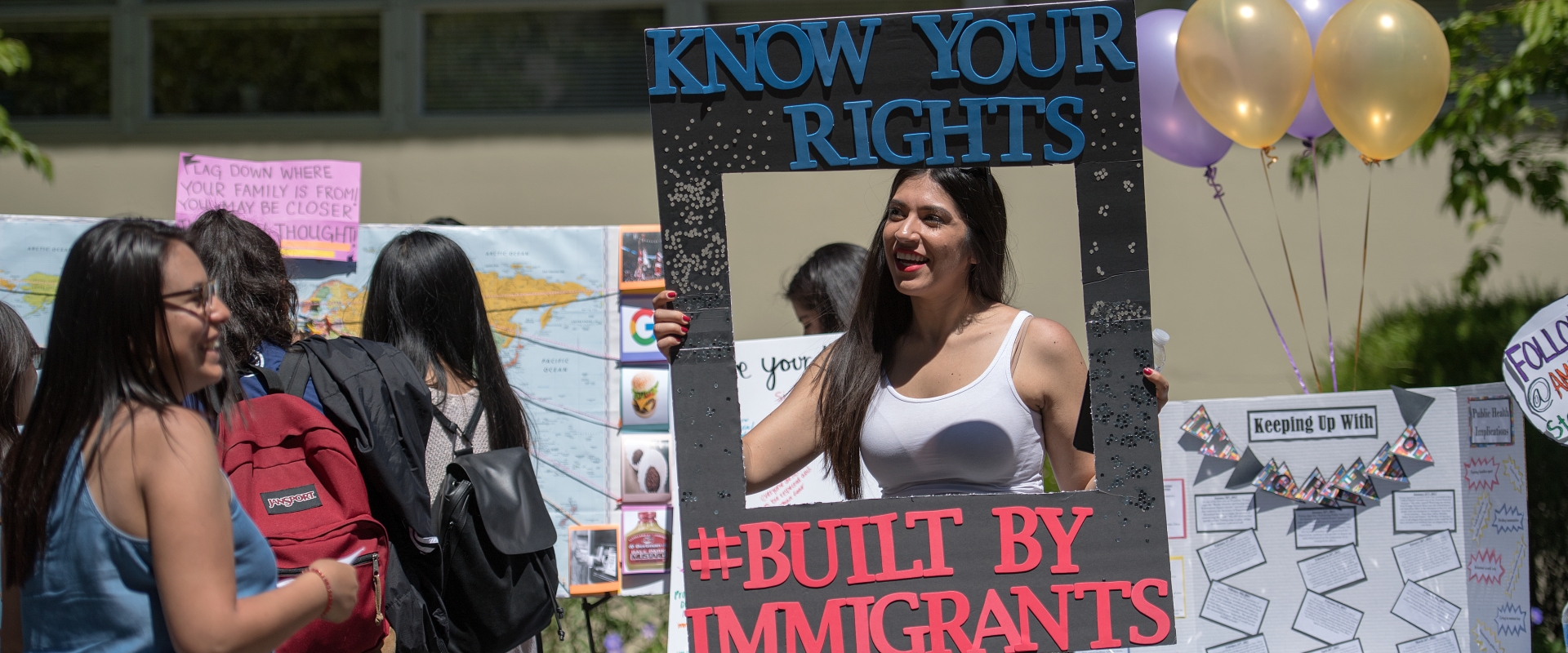Welcome to our Dreamers!
AB 540 Dream Student To Do List

Complete Your CADAA
The beginning of every Dream student's financial aid process will always be to complete a California Dream Act Application (CADAA) every single year. By completing a CADAA, they are ensuring themselves to be considered for State financial aid for the designated academic year they are planning on attending.
For more information on how to begin, access, or edit your CADAA, please click on the link provided down below.

Do Not Miss The State Priority Deadline!
The state of California has a priority deadline for every California resident or AB 540/SB 68 eligible student who completes a financial aid application - FAFSA or CADAA. They are required to complete their applications by the deadline of every single year in order to be considered for State financial aid.
Any student who misses the deadline becomes INELIGIBLE to be considered for State financial aid. Since AB 540 Dream students are only eligible for State aid, it is important they always meet this deadline.

Confirm AB 540 Status
The last step to ensuring a Dream student's financial aid awarding would be to confirm their AB 540/SB 68 status in their CADAA. If they were unable to do that through their CADAA, the student must submit their Non-Resident Tuition Exemption Affidavit (AB 540 Form) to the Admissions Office - Undergraduate or Graduate.
Please click on the link provided down below to access and complete this form.
What is "AB 540?"
Assembly Bill 540 (AB 540) is a law that was passed in 2001 by the California legislature and was amended with both Assembly Bill 2000 (AB 2000) in 2014 and Senate Bill 68 (SB 68) in 2017. The laws were written for students who are either Undocumented, U.S. Citizens, or Permanent Residents but are considered "non-residents for tuition purposes." If these students meet specific requirements, such as attending a CA public institution of higher learning, they are able to pay resident fees instead of non-resident fees.
To qualify for AB 540 status, receive financial aid through the CADAA, and pay resident fees, students must meet the following requirements:
- Attendance
- Attend a California high school for a minimum of three or more years OR
- Attend a California elementary, middle, and/or high school for a combination of three or more years OR
- Attend or attain credits at a California high school adult school, and/or California Community College for a combination of three or more years
- Graduation
- Graduated or will graduate with a California high school diploma or the equivalent (California-issues GED, CHSPE) OR
- Completed or will complete (before the first term of enrollment at the CSU) an associate’s degree from a California Community College OR
- Completed or will complete (before the first term of enrollment at the CSU) the minimum requirements at a California Community College for transfer to the California State University
- Enroll in an accredited California institution of higher education (CCC, CSU, or UC)
- File a Non-Resident Tuition Exemption Affidavit with the Admissions Office (Undergraduate or Graduate) or complete the Affidavit embedded in the California Dream Act Application
Frequently Asked Questions (FAQs) about AB 540 process
The Financial Aid Office does not handle residency inquiries
When it comes to the processing of AB 540 forms, please contact the Admissions Office directly - Undergraduate or Graduate. They are in charge of the reviewing of these forms.
The Non-Resident Tuition Exemption Affidavit (AB 540 Form) is worded in a way to protect any Dream students from having to declare their immigration status. Undocumented students, including DACA recipients, are grouped with U.S. Citizens and Permanent Residents in qualifying to pay for resident tuition fees.
Please submit the document provided in the link down below to their respective offices based on your academic level.
Having AB 540 status does not establish legal residency for immigrant students or for undocumented students who are eligible for the non-resident tuition exemption. It only exempts AB 540/SB 68 students from paying non-resident fees. Undocumented students who have questions about their legal residency should consult an immigration attorney.
As stated above, U.S. Citizens and Permanent Residents can also be considered non-residents of California for tuition purposes. This can occur when the student’s residency status is determined by the residency status of a parent or legal guardian. Typically, this applies to students who are under the age of 19 or even students who are over 19, but are still financially dependent on a parent or legal guardian.
Regardless of immigration status, students can apply for admission to a public college or university in California. The law allows students the following rights under AB 540 legislation:
- Public colleges and universities in California CANNOT discriminate a student’s admission based on a student's immigration status.
- Students are NOT required to show an ID or Social Security Card for admission purposes.
For further questions regarding how residency status affects tuition, please review Immigrants Rising's guide listed below.
